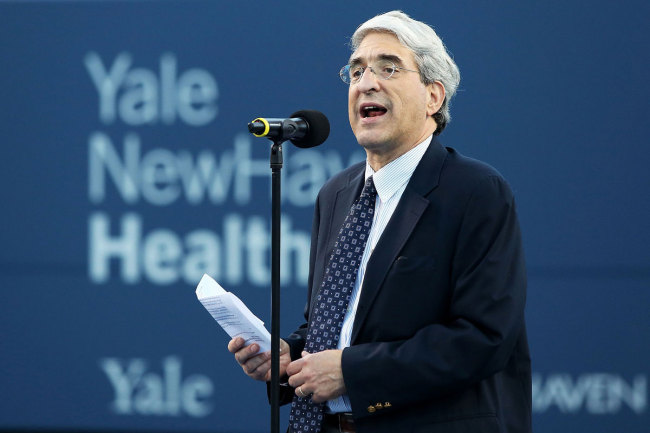The 'China phobic' paranoia harming Sino-US relations


Note: The following article is taken from the Chinese-language "Commentaries on International Affairs".
Peter Salovey, president of Yale University in the United States, recently published an open letter expressing his growing unease about "tensions in United States – China relations and the increased scrutiny of academic exchanges." He stressed that openness is the key to the excellence of top US research universities and must remain a hallmark of Yale.
President Salovey's open letter showed that people-to-people exchanges, one of the cornerstones of Sino-US relations, is facing a growing threat from the "persecutory delusions" of certain people in the United States. Holding up the banner of unilateralism and protectionism, certain politicians in the US are paranoid, and regard China as a hypothetical enemy, attacking what they see as China's "economic aggression," slandering China by accusing it of theft and even accusing Chinese students of being "spies." Their delusions are rich, unlimited and somehow impossible, enough to shock any sensible human.
Friendship between peoples is the foundation of state-to-state relations. The basis for the sound development of Sino-US relations started with people-to-people connections in various fields. From Ping-Pong diplomacy, which used table tennis as a facilitator to improve the then toxic Sino-US relationship, to non-governmental contacts and exchanges between think tanks, and even the sharing of cute panda "ambassadors." Those engaged in people-to-people exchanges between China and the United States have played a role as explorers, pavers and guardians in the development of their national relations. Every day, more than 14,000 people fly across the Pacific; every year, more than 5.3 million people travel between China and the United States, and in total, more than 200 hundred pairs of twin-cities have been formed over the course of time. These figures are testament to the prosperity and closeness of people-to-people exchanges between China and the United States.
However, certain politicians in the United States who appear to be suffering from "persecutory delusions" are now showing their paranoia in relation to normal people-to-people exchanges. They are spreading rumors to create trouble, slandering Chinese students and scholars, suggesting they are "spies" in order to intimidate the American people. Their actions, inciting confrontation between the Chinese and American people, have had a serious impact on the cornerstone of Sino-US relations. Banning some Chinese scholars from entering America for no good reason, introducing legislation to heighten screening of visa applications by Chinese students and researchers, and curbing the development of Confucius institutes with the preposterous excuse that China is attempting to influence US public opinion through them ... these are just some of the methods prompted by some US politicians trying to close the door for normal people-to-people exchanges. FBI Director Christopher Wray even suggested at a Senate Intelligence Committee hearing that "the Chinese counter-intelligence threat is more deep, more diverse, more vexing, more challenging, more comprehensive and more concerning than any counter-intelligence threat that I can think of," and that a response from the whole of US society is needed. This statement, borne entirely out of delusion, clearly aims to encourage "China Phobia" among the American people and create so-called "public support," out of thin air, for their personal crazy behavior.
However, these paranoid words and deeds won't fool rational people. Over the past nine years, China has been the largest source of exchange students in the United States, contributing about $13.9 billion to the US economy in the 2017-2018 academic year alone. The US "Foreign Policy" website recently published an article by Paul Musgrave, an assistant professor at the University of Massachusetts Amherst, saying that the "American schools' best market" is Chinese students, and that the unilateral constriction of the number of Chinese students by the United States "poses a significant and underappreciated risk to US schools," and that "much of America's higher education system couldn't survive without that money."
In his open letter, Yale University president Peter Salovey also stressed the significance of fostering new discoveries by "bringing the most talented and promising students and scholars to our campus" and advancing the school's mission of "improving the world today and for future generations." He reiterated that "international students and scholars are welcome and respected" at Yale.
The historical torrent of in-depth exchanges between the Chinese and American peoples is unstoppable. Although delusional US politicians are trying their best to create an imaginary "China threat", to deceive and intimidate the American people, and to coerce them into acting rashly, even these politicians will eventually be engulfed and drawn along by the torrent that is the desire for exchanges between the peoples of China and the United States.



































